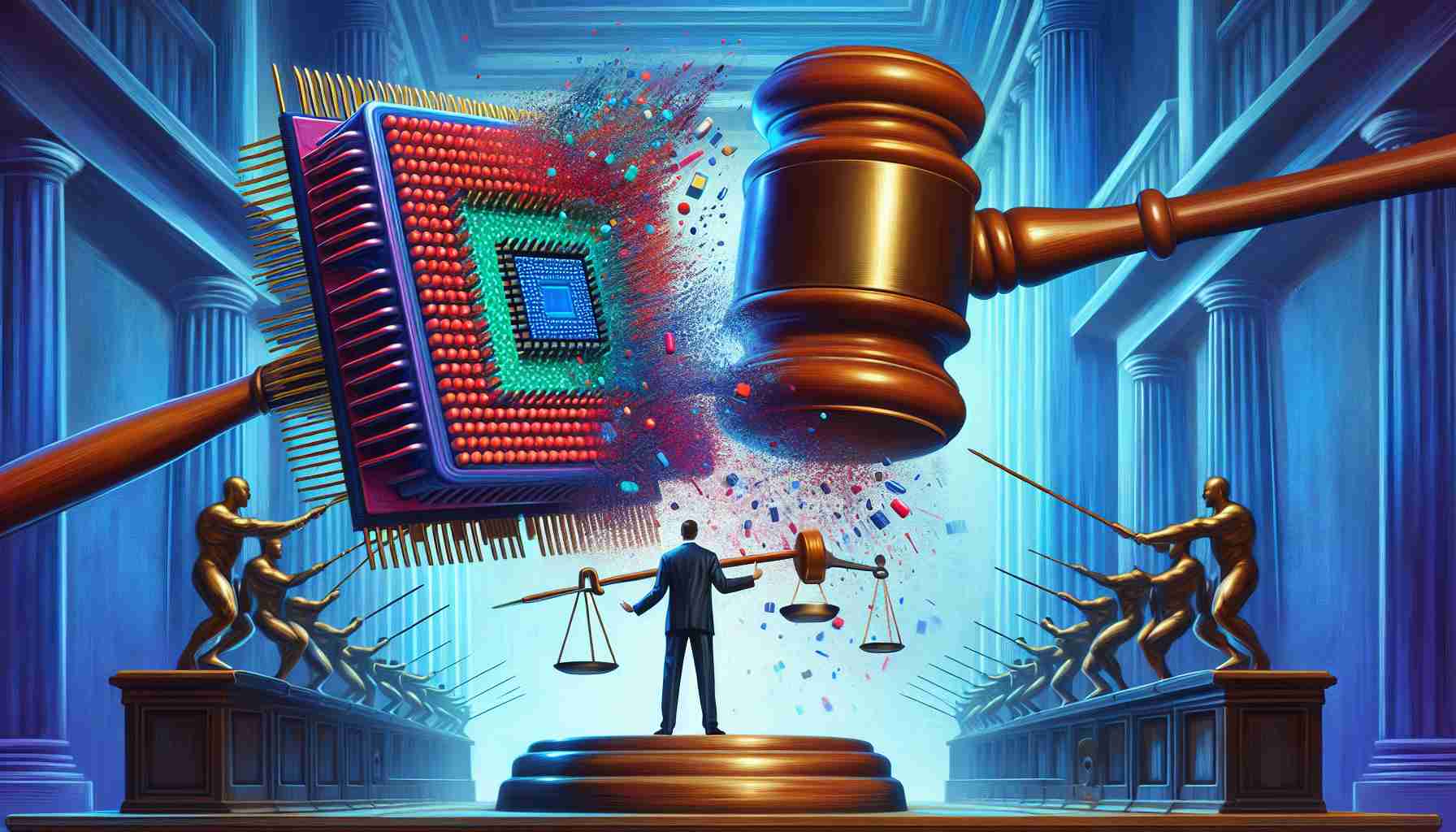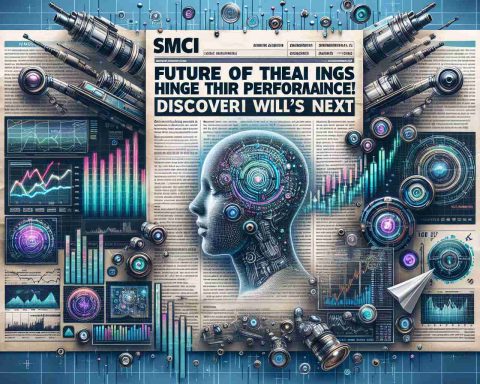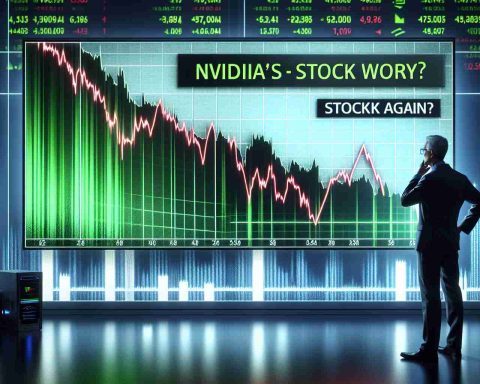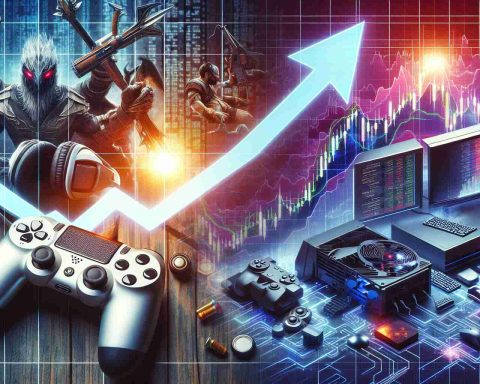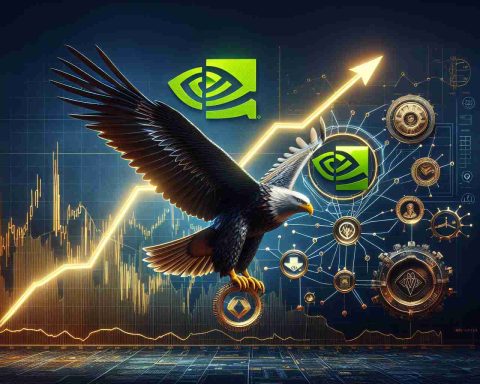Understanding the Tensions Over AI Technology
The battle between the tech industry and government regulations escalates as Nvidia stands against a new directive from the Biden administration regarding artificial intelligence (AI) technologies. The administration unveiled an executive order aimed at safeguarding AI advancements by restricting their export to adversarial nations, while simultaneously encouraging collaboration with allies.
According to U.S. Commerce Secretary Gina Raimondo, this initiative is designed to foster a secure global tech ecosystem while addressing national security threats associated with AI. The policy’s intention is to promote innovation and uphold U.S. technological supremacy.
However, Nvidia’s vice president, Ned Finkle, voiced concerns that this sweeping regulation could hinder global AI progress and economic growth. He argues that the rules pose bureaucratic restrictions on the design and marketing of crucial technological products worldwide. Finkle criticized the measures, suggesting they do not effectively bolster U.S. security.
The new regulations include exemptions for exports to 18 allied countries, allowing seamless transactions for advanced AI chips without requiring licenses for a significant volume. This aims to maintain collaboration with trusted partners while still enforcing stringent controls on advanced technology exports to nations of concern.
As the semiconductor giant navigates through these complexities, the ongoing debate highlights the broader implications of technology governance in an increasingly competitive global landscape.
Navigating the Future: The Implications of AI Regulation on Global Progress
The current tensions surrounding artificial intelligence (AI) technology reflect a critical intersection of governance, economic growth, and international relations. The Biden administration’s directive to regulate AI exports, particularly to adversarial nations, aims to bolster national security while simultaneously fostering a secure technological ecosystem. However, this regulation not only impacts technological progression but also reverberates through various facets of our society, including the economy, environment, and ultimately, the future of humanity.
Environmental Implications of AI Regulation
The development and deployment of AI technologies can play a transformative role in addressing global environmental challenges. AI has the potential to optimize energy consumption, improve resource management, and enhance climate modeling, thus enabling more sustainable practices across industries. However, restrictive regulations, such as those imposed on AI exports, could slow down collaborative innovations that are crucial for environmental sustainability.
For instance, advanced AI solutions used for climate monitoring or renewable energy management often require international collaboration and data sharing. If U.S.-based companies face bureaucratic hurdles in exporting AI technologies, it may hinder their ability to partner with international entities crucial for addressing issues like climate change or pollution—all of which have direct consequences for the planet.
Socioeconomic Impacts
Effectively governing emerging technologies like AI is crucial for maintaining competitive economic advantages. Nvidia’s concerns about the potential for regulatory overreach to stifle innovation resonate with many in the tech sector. Economically, a restrictive environment could lead to a flow of talent and investments away from the U.S. and into more open markets, diminishing economic growth and job creation domestically.
If rigged by excessive regulations, companies might pivot their focus towards compliance rather than innovation. Thus, while these rules seek to secure U.S. technological leadership, they risk fostering an environment that could limit the job market’s growth potential and reduce the dynamism of the economy at large.
Global Effects and the Future of Humanity
The interplay of technological competition and regulation raises critical considerations for the future of global alliances and human progress. As nations vie for technological supremacy—particularly in AI—regulatory frameworks must be thoughtfully crafted to encourage collaboration rather than isolation. The new directive’s exemptions for 18 allied countries show a strategic approach to maintain partnerships, but it must be complemented by open lines of communication and trust to yield lasting benefits.
Ultimately, the future of humanity hinges on our ability to navigate these technological and regulatory challenges. Transparent and equitable governance that promotes innovation while safeguarding security will be essential. As we look ahead, the integration of AI into everyday life holds promise for solving complex societal issues, from healthcare to environmental sustainability.
In sum, the outcome of the ongoing debate over AI regulation will significantly influence not only technological advancement but also the broader implications for environmental stewardship, economic resilience, and international cooperation, shaping the world in profound ways for generations to come.
The Future of AI: Navigating Tensions Between Regulation and Innovation
## Understanding the Balancing Act Between Innovation and Security in AI Technology
The landscape around artificial intelligence (AI) technology is rapidly evolving as tensions surface between tech companies and government entities. A recent executive order from the Biden administration seeks to address national security concerns related to AI by restricting the export of advanced technologies to adversarial nations. Notably, Nvidia has emerged as a key player in this conversation, critiquing the potential impact of these regulations on global innovation.
Key Features of the Executive Order
– Export Restrictions: The directive specifically aims to limit the export of AI technologies to nations deemed adversarial, which includes China and others identified as security threats. This initiative is part of a broader strategy to preserve U.S. technological leadership while mitigating security risks associated with AI advancements.
– Exemptions for Allies: To encourage cooperation with friendly nations, the policy includes exemptions for 18 allied countries. These exemptions allow the export of advanced AI chips without requiring licenses for specific volume thresholds, fostering stronger international partnerships.
Pros and Cons of the Regulations
# Pros:
– Enhanced National Security: By controlling the flow of sensitive technologies, the U.S. can better protect itself from potential espionage and the misuse of AI.
– Encouraged Innovation: The focus on collaboration with allies may lead to joint ventures and innovation in AI technology, benefiting both the U.S. and its partners.
# Cons:
– Stifled Global Progress: Critics like Nvidia’s Ned Finkle argue these regulations may hinder global AI advancements and economic growth by introducing bureaucratic hurdles.
– Competitive Disadvantages: If U.S. companies face stringent export controls while competitors in other countries do not, this could lead to a decline in market share for American firms.
Insights and Predictions for the Future
As global competition intensifies, the question of how to balance innovation with security remains crucial. Experts predict the following trends:
– Increased Cooperation: AI technologies are likely to see enhanced cooperative development among allied nations, leading to shared research and joint ventures.
– Emerging Controversies: Ongoing debates about the effectiveness and implications of such restrictions may lead to legal challenges and shifts in policy as the tech industry pushes back against perceived overreach.
– Adaptation of Companies: Companies like Nvidia will continue to adapt their strategies in response to these regulations, possibly leading to innovation in compliance technologies that navigate the complexities of export controls.
Compatibility and Market Analysis
The regulations will require tech companies to ensure that their products and services are compatible with the new export controls. This creates a demand for additional transparency and traceability in the tech supply chain. As compliance becomes necessary, there will be a market for solutions facilitating adherence to these rules, potentially spurring the growth of new sectors focused on regulatory technology.
Conclusion: A New Era for AI Governance
The intersection of AI technology, international relations, and national security presents complex challenges. As companies adapt to new regulations designed to protect U.S. interests, the future of AI could hinge on how effectively the industry communicates and collaborates with government entities. This evolving narrative will shape not only technological advancements but also the future of international partnerships in AI.
For further insights into the impact of AI regulations, visit TechCrunch.

